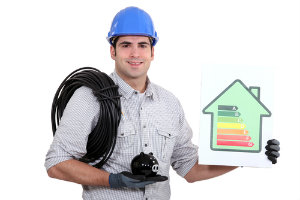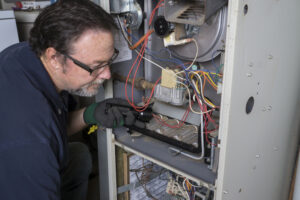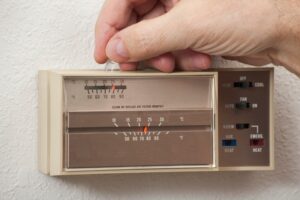Why a Home Energy Audit is Important to Home Comfort and Energy Savings

What Sort of Savings Can You Expect?
According to federal Energy Star program, you can save from 5 to 30 percent on energy bills if you follow the recommendations in a professional home energy audit. Usually, the suggested steps include relatively easy improvements such as sealing air leaks in your home’s exterior envelope and upgrading insulation. If your home has old drafty windows or old, inefficient heating and cooling equipment, addressing those issues will be costly, though the long-term savings should go a long way toward recouping that expense.
What’s Involved?
The energy auditor will first gather information about your home and your household’s energy use, including asking to look at a year’s worth of utility bills and determining what temperatures you usually set the thermostat from season to season. The auditor will inspect the home itself, including doors, windows, walls, insulation and appliances that add heat to your home, such as ovens and dishwashers.
Most energy audits include a blower door test to assess your home’s airtightness. In this test, a powerful fan and frame is fitted into an exterior door cavity, so it’ll blow toward the outside. The fan will suck air from the house, reducing air pressure inside. (Before the test, all windows and doors should be closed with interior doors opened up between rooms and hallways.)
An air pressure gauge assesses how quickly the inside air pressure returns to normal. If it regains standard pressure quickly, your home is relatively leaky. Your home is more airtight if it takes longer to re-pressurize.
An infrared camera often is used with the blower door test. It measures heat in the walls, with lighter colors denoting warmer temperatures and darker colors reflecting cooler temperatures. The imaging will show where air is leaking into or escaping from and also identify where insulation is missing or insufficient.
The home energy audit may also examine how well your home and its HVAC system controls humidity, since that does affect both your comfort and energy use. Ductwork should be examined, along with the setup with supply and return registers. Balanced airflow is crucial to an energy-efficient home.
A Budget Energy Audit
If you’re not ready to invest in a full-fledge home energy audit, you can undertake a limited audit of your own to find air leaks. Light an incense stick or smoke pencil and walk along the inner side of your home’s exterior walls. Likely spots for leaks are doors and windows, places where pipes, vents and electrical wiring are routed through the walls, and intersections of different structural elements (such as the walls and foundation). When the smoke moves horizontally, you’ve probably found the air leak. Keep track of where they’re located so you can come back later and seal leaks with caulk, spray foam or weatherstripping.
While these do-it-yourself steps will help save energy, a home energy audit is a comprehensive way to save ample energy over the long term, and usually at an affordable price.
Recommendations for Energy Efficiency
Based on all the information found during the home energy audit, a full report will be written, detailing likely energy waste and inefficiencies and explaining to the homeowner all of the issues affecting efficiency and energy use. The recommendations will probably suggest sealing air leaks throughout your home’s exterior envelope. The report will recommend adding insulation anyplace where it’s lacking, with a special emphasis on the attic, since insulation upgrades here provide the greatest benefits in the typical home.
The energy assessment may even suggest replacing old, inefficient heating and cooling systems. While there’s nothing cheap about investing in new HVAC equipment, the lower energy bills over the years gradually will pay off that investment. You’ll be more comfortable with improved indoor air quality as well.
To learn more about a home energy audit, contact us today at Climate Master Mechanical Contractors, Inc. We’re proud to provide superior HVAC services to the Chicago area.
Image Provided by Shutterstock.com
You May Also Like

3 Ways Ductwork Impacts HVAC System Performance in Mokena, IL
Ductwork is critical to making any central HVAC system work efficiently. Here are three ways your ductwork influences the performance of the… Continue Reading 3 Ways Ductwork Impacts HVAC System Performance in Mokena, IL…

3 Furnace Odors and What They Mean in New Lenox, IL
When you first turn on a brand-new furnace, you might expect a few mild odors to appear as the system establishes itself.… Continue Reading 3 Furnace Odors and What They Mean in New Lenox, IL…

Do I Need to Replace My Old HVAC Thermostat in Mokena, IL?
A thermostat is like the brain of your HVAC system. If it doesn’t function properly, no part of the HVAC system in… Continue Reading Do I Need to Replace My Old HVAC Thermostat in Mokena, IL?…
